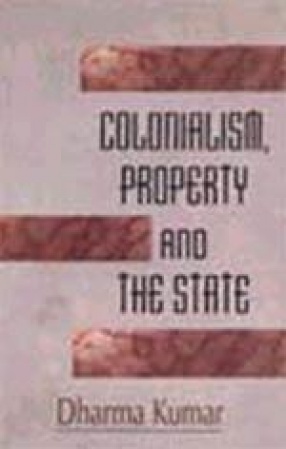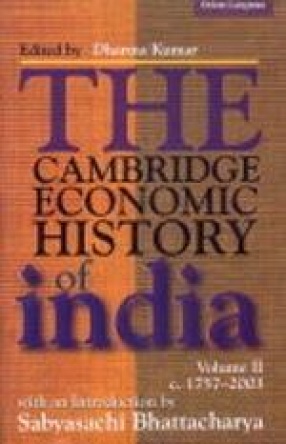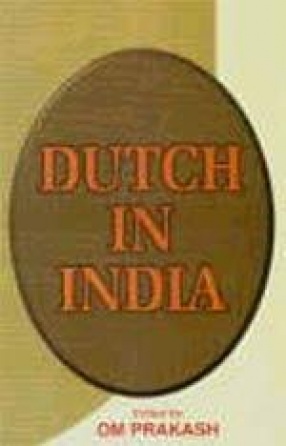The author examines diverse issues that have been important in history writing in India, such as the nature of the colonial state, changes in land distribution, the invisible sector, and the extent of taxation in Mughal and British India. These essays are grouped under discrete but not unrelated heads–the Madras Presidency, land, comparative studies of India, Indonesia and China and the evolution of the colonial state. Many of the author’s findings are unexpected. For example, her study of the Madras Presidency reveals that land distribution was less unequal in 1947 than in 1800. This redistribution was facilitated by favourable legislation specific to Madras, and by the mobility of labour in general, which influenced wages and the ability to purchase land. The section containing comparative studies surveys the evolution of states in Asia as a whole, and discusses aspects of European colonialism in Asia. Again, she argues that the British India government may have been less extortionist than its immediate predecessors, and that the colonial period brought the modern state to India, but under peculiar circumstances. Students and researchers of Indian history will find this collection of essays by a respected economic historian rigorously argued and provocative.
Colonialism, Property and the State
In stock
Free & Quick Delivery Worldwide
reviews
Bibliographic information
Title
Colonialism, Property and the State
Author
Edition
1st ed.
Publisher
ISBN
0195641728
Length
viii+385p., Tables; Figures; 23cm.
Subjects







There are no reviews yet.